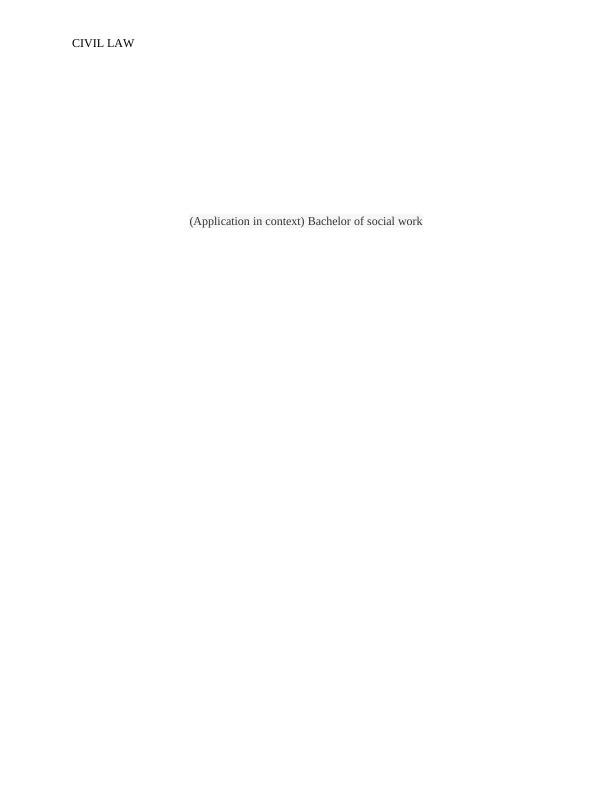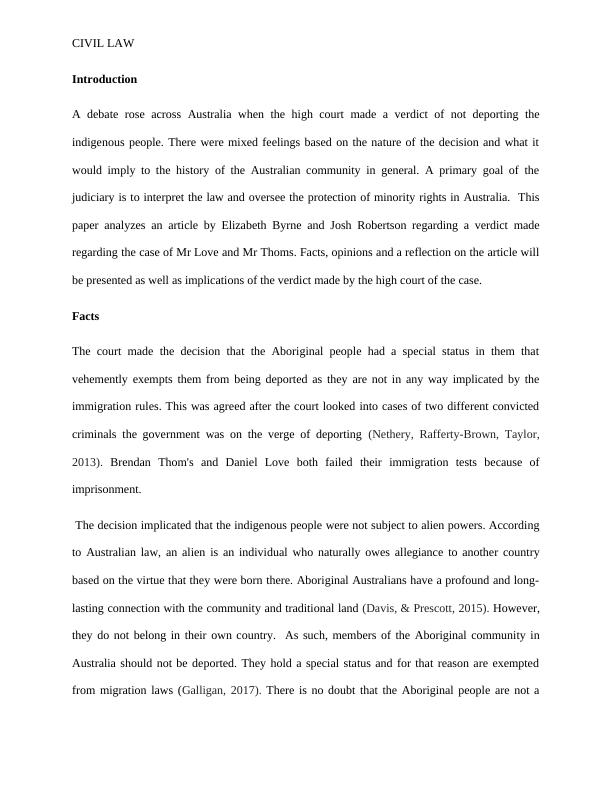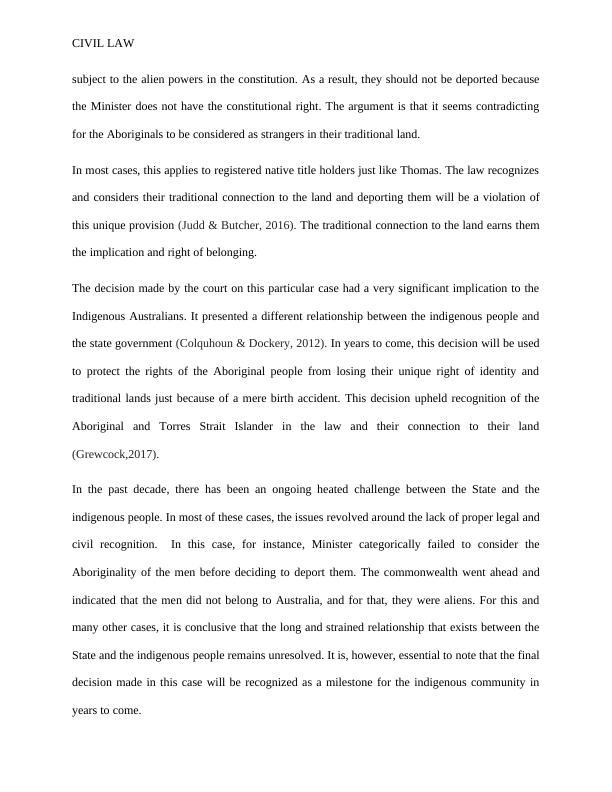CIVIL LAW. (Application in context) Bachelor of social work
Added on 2022-08-20
8 Pages2112 Words15 Views
End of preview
Want to access all the pages? Upload your documents or become a member.
Aboriginal People of Australia Assesment Report
|10
|2274
|14
Debate in Public Law
|5
|1218
|36
Mabo v Queensland: A Landmark Case in Constitutional Law
|16
|4780
|7
The Mabo Decision and the Native Title Act: Benefits and Shortcomings
|7
|2142
|269
Mabo and Others v Queensland: A Landmark Decision for Native Title Rights in Australia
|8
|1952
|193
Mabo and Others v Queensland (No.2) 1992 Incorporating the Native Title Act 1993 2 CONCLUSIONS 4 REFERENCES 5 INTRODUCTION
|7
|2092
|33



